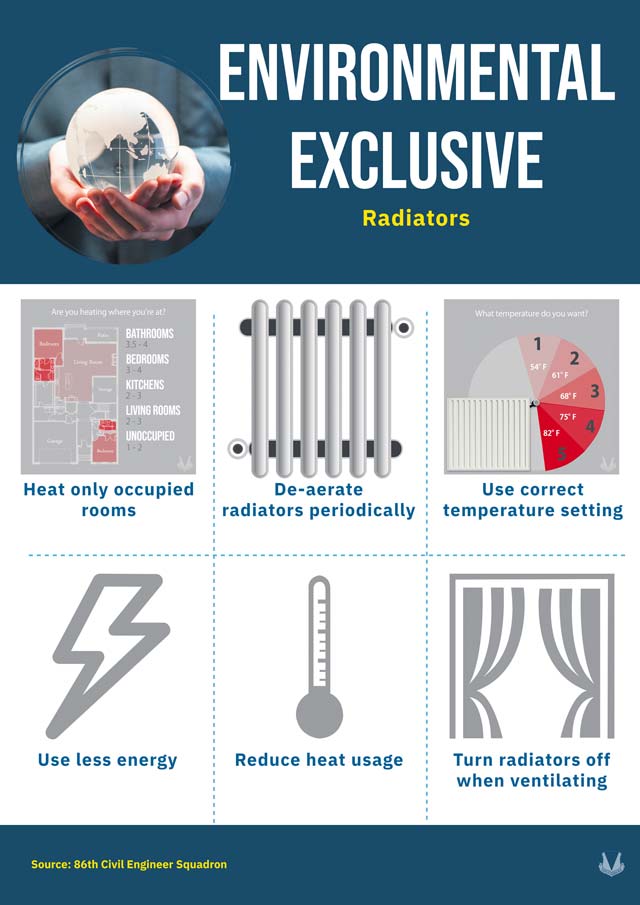
Autumn is here, which means service members, civilians and families stationed in the Kaiserslautern Military Community need to know how to operate a radiator.
Radiators are standard throughout Germany and can be found in homes with central hot water heating systems.
While it is common to open windows to recycle the air to prevent mold, ventilating with the heat on can be wasteful.
Last year, Ramstein Air Base’s daily heating costs were approximately $45,000 during the colder months. To ensure proper energy efficiency, radiators need to be deaerated periodically. Deaerating is the process of removing the air from a radiator.
“If the radiators are warm from end to end and there is no rumbling noise, there is typically no air in the radiator,” said Maria Meyers, 86th Civil Engineer Squadron mechanical engineer. “If the end opposite of the radiator valve is cold and there is a rumbling or bubbling noise inside the radiator, the air is in the system and the radiator should get deaerated. One can use a square socket key to open the deaerator valve, while holding a cup underneath. After the air is released, the heating system water will get dispensed. After deaerating, close the valve. The heating system water is typically dirty; therefore, make sure you have a cup handy to catch the dirty water.”
If a room is unoccupied, place the radiator on the universal star setting, which is 45 degrees Fahrenheit. This allows warm water to get in, so it will not freeze.
“It is not good to run the heat while the windows are open, as it will waste energy during the heating season,” Meyers said. “Opening the windows for ventilation for about five to ten minutes, two to four times per day, is a must in German homes without a central ventilation system. During the heating season, you should close the radiator valve before opening the windows for ventilation. After ventilation, you should open the radiator valve again.”
For more information, call the 86th CES at 480-3723.


